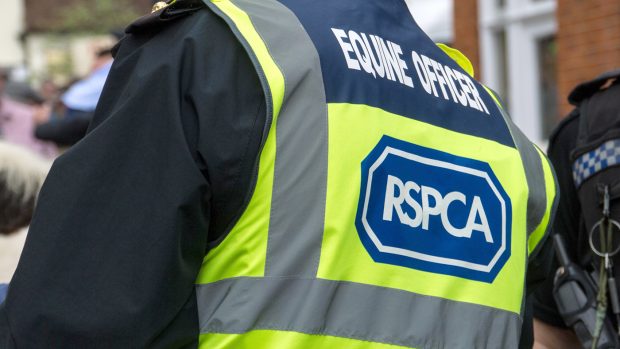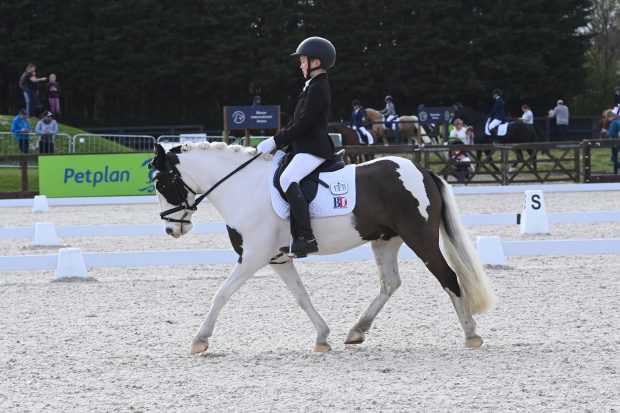Evidence is being heard in parliament today as the government begins its inquiry into the Animal Welfare Act.
A total of 240 submissions have been made by organisations — including the RSPCA, World Horse Welfare, British Veterinary Association and the British Horseracing Authority.
The environment, food and rural affairs sub-committee is holding an oral evidence session, which started at 2.15pm this afternoon (Tuesday, 12 April).
This first inquiry looks at whether the Act is fit for purpose and focuses on domestic pets, including cats, dogs and horses.
Topics for discussion include the effectiveness of the Act, regulation surrounding the sale and advertising of pets as well as enforcement of current animal welfare legislation.
“The UK can have the best animal welfare laws in the world but they are useless if they are not enforced. The Animal Welfare Act is a good piece of legislation but horses are being failed by lack of resources and political will to enforce it,” states the opening of World Horse Welfare’s submission.
Among its recommendations is that enforcement is made a statutory responsibility for local authorities and that Trading Standards should train or recruit specialists in animal law to take on more prosecutions more effectively.
The British Horse Society (BHS) makes the point that horses cannot be considered domestic pets in the same way as a dog or a cat.
“Horses are more expensive to care for than other domestic pets and if a case involves multiple horses the costs involved will easily run into tens of thousands and beyond,” reads the BHS statement.
“Whilst it would be inappropriate to compromise confidentiality, we have certainly been made aware of cases where action has not been taken by local authorities simply due to the costs involved.
“The burden is thus passed to the charitable sector, who have no legal powers and limited funds.”
Its statement concludes by saying the BHS is “largely satisfied” with the existing welfare legislation, but would encourage research into licensing and inspection options as well as education.
Meanwhile, the National Police Chiefs’ Council (NPCC) has put forward the idea that a single agency, preferably a government-funded statutory body, should be set up as the primary enforcer.
“Under the Act there is no one agency that is held responsible or accountable for enforcement of animal welfare,” said deputy chief constable Gareth Pritchard, NPCC lead for dangerous dogs and companion animals.
“This means there are inconsistencies, however, the police, local authorities and animal welfare charities do seek to work together to deal with serious cruelty to animals.
He added that the NPCC welcomes the inquiry.
The RSPCA has responded to the NPCC’s suggestion, saying it brings private prosecutions as a means of carrying out its charitable purposes of preventing and suppressing cruelty to animals, for the public benefit.
A spokesman told H&H that its successful investigative and prosecution work saves the taxpayer an estimated £43million each year, with 796 defendants being convicted of 1,781 animal cruelty offences in 2015 — a success rate of 92.4%.
He added the RSPCA is responsible for more than 80% of proceedings under the Act.
“It has largely fallen to the RSPCA to ensure that the Animal Welfare Act is adequately enforced in relation to domestic animals,” he said.
“Local authority enforcement has, if anything, reduced further in the past few years. Whilst the RSPCA is not against statutory enforcement we wonder which public body has the expertise, experience and money needed to take this forward at a time when public spending is being cut.”
Tim Bonner, chief executive of the Countryside Alliance, told H&H the organisation welcomed the RSPCA’s decision to stop prosecuting hunting cases, but feels this does not go far enough.
He added he believes the RSPCA should pass all its cases to the CPS and police, rather than bringing private prosecutions.
Related articles:
- RSPCA to stop chasing hunting cases through courts
- 15,000 unrecorded foals born each year, charity warns
- RSPCA warns of Kent ‘horse crisis’: 300 calls in two weeks *warning: graphic images*
“The RSPCA’s multiple roles as investigator, prosecutor, lobbyist and fundraiser have been a great cause for concern for many years and we agree wholehearted with the NPCC, that the RSPCA should not be the prosecutor of first resort for the cases it brings,” said Mr Bonner.
“We do not believe that a new body needs to be set up to deal with animal welfare cases – the CPS was set up to asses and if necessary to prosecute crimes in England and Wales.
“There is no precedent for a distinct body to pursue a specific type of law-breaking.”





